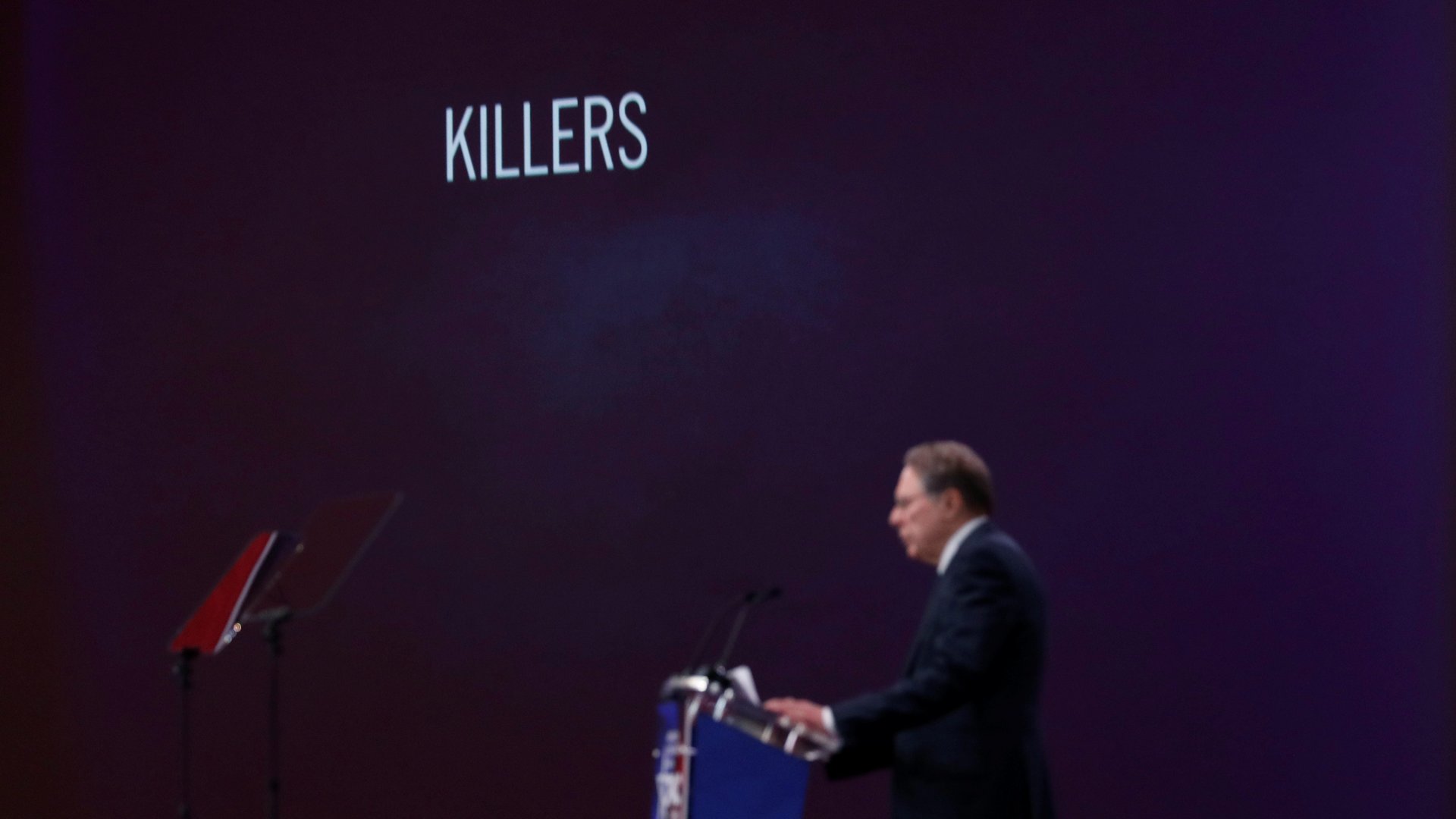The NRA’s prescription to stop gun violence is absolutely right—but far from sufficient
The National Rifle Association says the US needs to fix its flawed background check system to prevent deadly shootings as the one in Parkland, Florida last week.


The National Rifle Association says the US needs to fix its flawed background check system to prevent deadly shootings as the one in Parkland, Florida last week.
The gun lobby’s spokespeople point to seven million records that are missing from the federal database gun sellers use to verify that a buyer is allowed to get a firearm. While the accuracy of that figure is questionable, the fact is that the National Instant Criminal Background Check System is incomplete.
NICS, as the database is called, relies on states to feed it with the records of people who are disqualified from buying a gun. They include convicted criminals, fugitives of justice, domestic violence perpetrators, and people who have been committed to a mental hospital against their will. The military, too, is supposed to alert NICS about members who fit the barred categories.
The problem is that neither states nor the military have been doing a very thorough job. The reasons for this span from bureaucratic ineptitude to concerns about violating privacy laws. In one tragic example, the Air Force failed to report an assault conviction of a former airman, who was able to buy firearms that he used to kill 26 people in a Texas church.
Even states that have voluntarily signed up to help the federal government carry out the background checks have a problem with sloppiness. In those places, gun dealers call a designated state agency, not the federal government, to run checks on customers. The local officials are then supposed to upload a record of the transaction to NICS, along with any related information on the the would-be gun buyer. A 2016 NICS audit by the Department of Justice suggests that hardly ever happens. Only one out of a sample of 631 checks was properly updated.
“These incomplete records pose a risk that future firearms may be transferred to prohibited persons because future checks might not identify the information uncovered in prior checks, or do so in a timely fashion,” the Justice Department wrote in its report.
In the wake of last week’s Parkland, Florida, school shooting, the NRA argued that politicians should pressure states to fully report all convictions. That’s a laudable goal—which the NRA itself has also sought to make more difficult. The organization supported a lawsuit that challenged background check requirements for states under the 1993 Brady Act. When the Supreme Court ruled on the case in 1997, it established that the federal government could not force states to carry out the checks.
The group also skips over the improvements states have made in recent years in submitting records to NICS, says Adam Skaggs, chief counsel at the Giffords Law Center to Prevent Gun Violence. Even with its flaws, the system has stopped millions of gun sales, he adds. Skaggs agrees with the NRA that those missing records have to be added to NICS, but says that’s only one piece of a necessary package of measures to stop gun violence.
“The fact that you can go to a gun show and buy a gun without a background check, or find a gun for sale and then pay cash and walk away… that I would submit is a much more significant problem than some of the challenges of getting the records into the system,” he says.
The NRA itself recognizes that the effectiveness of the background check system is limited, even if it were up to date. Background checks can’t detect criminals who buy firearms illegally, or through other people, the group’s lobbying arm points out in its website. Background checks also can’t identify mass shooters with no criminal record before committing their attacks, like Parkland shooter like Nikolas Cruz.
Those facts also illustrate a larger point, which the NRA has not acknowledged: Existing background checks are not enough.
Some anti-gun violence advocates say background checks themselves should be more exhaustive and that the categories of people prohibited from buying guns should also be expanded. Authorities should have some discretion to bar even people who don’t fall within them if they show signs of being a potential danger to themselves or others, they add. Only then could a background check have uncovered the Parkland shooter’s troubling background.
Others, including many of the attack’s survivors, say the government needs to ban the sale of semi-automatic weapons. That rule would have also stopped the Parkland shooter, who is 19 years old, from getting the AR-15 he used to gun down 17 people.
Those additional measures have already proven effective at curbing gun violence in other countries and some US jurisdictions.